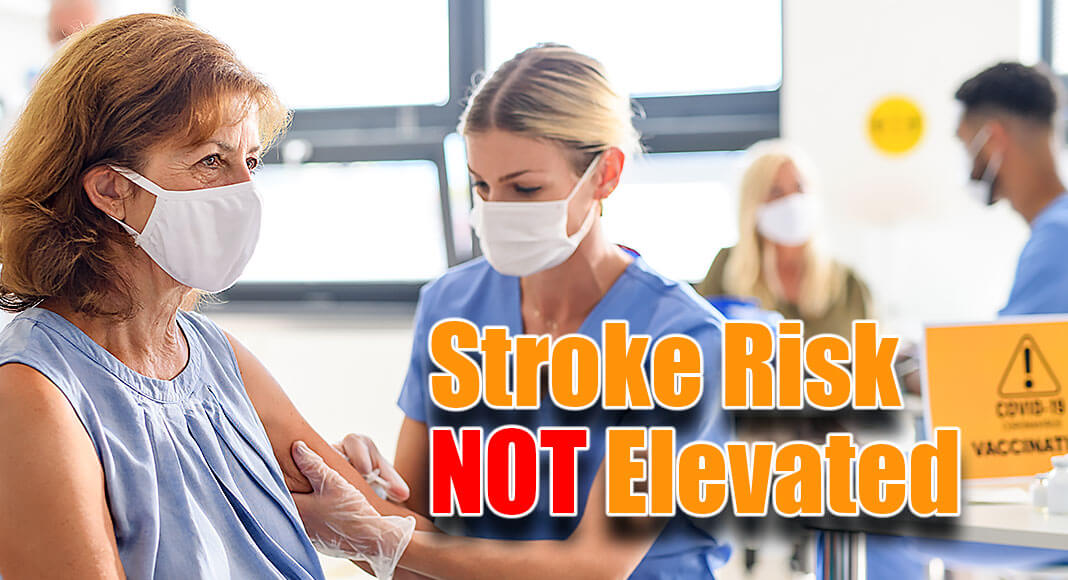
Mega Doctor News
By Cedars-Sinai
Newswise — LOS ANGELES – Newly compiled data evaluated by researchers in the Department of Neurology and the Smidt Heart Institute at Cedars-Sinai shows that COVID-19 vaccines do not raise stroke risk–but that severe COVID-19 infection does. Physician-scientists hope this growing body of evidence, highlighted today in an editorial in the peer-reviewed journal Neurology, will ease the minds of individuals still hesitant to be vaccinated.
“We now know that patients who’ve had a vaccine are not at higher risk of stroke, thanks to a large body of data with millions of patients who have been included,” said Alexis Simpkins, MD, PhD, director of Vascular Neurology Research in the Department of Neurology at Cedars-Sinai and co-author of the editorial and of a related study published by the journal. “You’re 200 times less likely–if you compare the numbers–to have had a stroke if you were vaccinated, than a person who was hospitalized with severe COVID-19 and was not vaccinated.”
That’s because COVID-19 infection, especially severe infection, can cause inflammation, clot formation and heart disease that increase stroke risk, Simpkins said.
“Clots can form and block blood flow to the brain. The lack of blood flow causes the brain cells to die, resulting in an ischemic stroke. Also, COVID-19-related inflammation can damage blood vessels in the brain, disrupting blood vessel integrity and resulting in brain hemorrhage,” said Simpkins.
Stroke risk is especially great for those who are at risk of severe COVID-19, including those who have lung or cardiovascular disease, high blood pressure, high cholesterol, diabetes, a prior stroke, and people who are immunocompromised, Simpkins said, adding that patients 65 and older have been reported to face increased stroke risk.
Even for those who aren’t infected with COVID-19, the pandemic has created conditions that can increase risk of stroke. Simpkins said that many people are experiencing increased stress and have fallen out of healthy habits, such as regular exercise and a healthy diet, and have fallen out of touch with their regular healthcare providers, who can help make sure blood pressure, cholesterol and blood sugar are at healthy levels.
“Vaccines against COVID-19 are not only effective and safe, they are essential to the safety of the whole community,” said Nancy Sicotte, MD, chair of the Department of Neurology and the Women’s Guild Distinguished Chair in Neurology at Cedars-Sinai. “We urge everyone to protect themselves and others–especially the most vulnerable among us–by getting vaccinated and keeping up with boosters.”
Sicotte, who also chairs the National Multiple Sclerosis Society vaccine task force, offered the acronym BE FAST as an easy way to remember the signs of stroke: balance, eyes, face, arms, speech, time. Loss of function in any of the first four areas are signs that there is no time to waste.
“Call 911 so that you can be brought to a hospital that can treat stroke patients,” Sicotte said. “When the ambulance comes to pick you up, they can employ stabilizing measures and will coordinate getting you to the best facility for stroke care.”
Meanwhile, as new variant-targeted COVID-19 vaccines and additional booster recommendations appear to be on the horizon this fall, Simpkins advised following Centers for Disease Control and Prevention (CDC) guidelines as the best protection against both COVID-19 and stroke.
“We have evidence to show that getting a vaccine can reduce risk of stroke as a result of severe disease from COVID-19,” Simpkins said.








